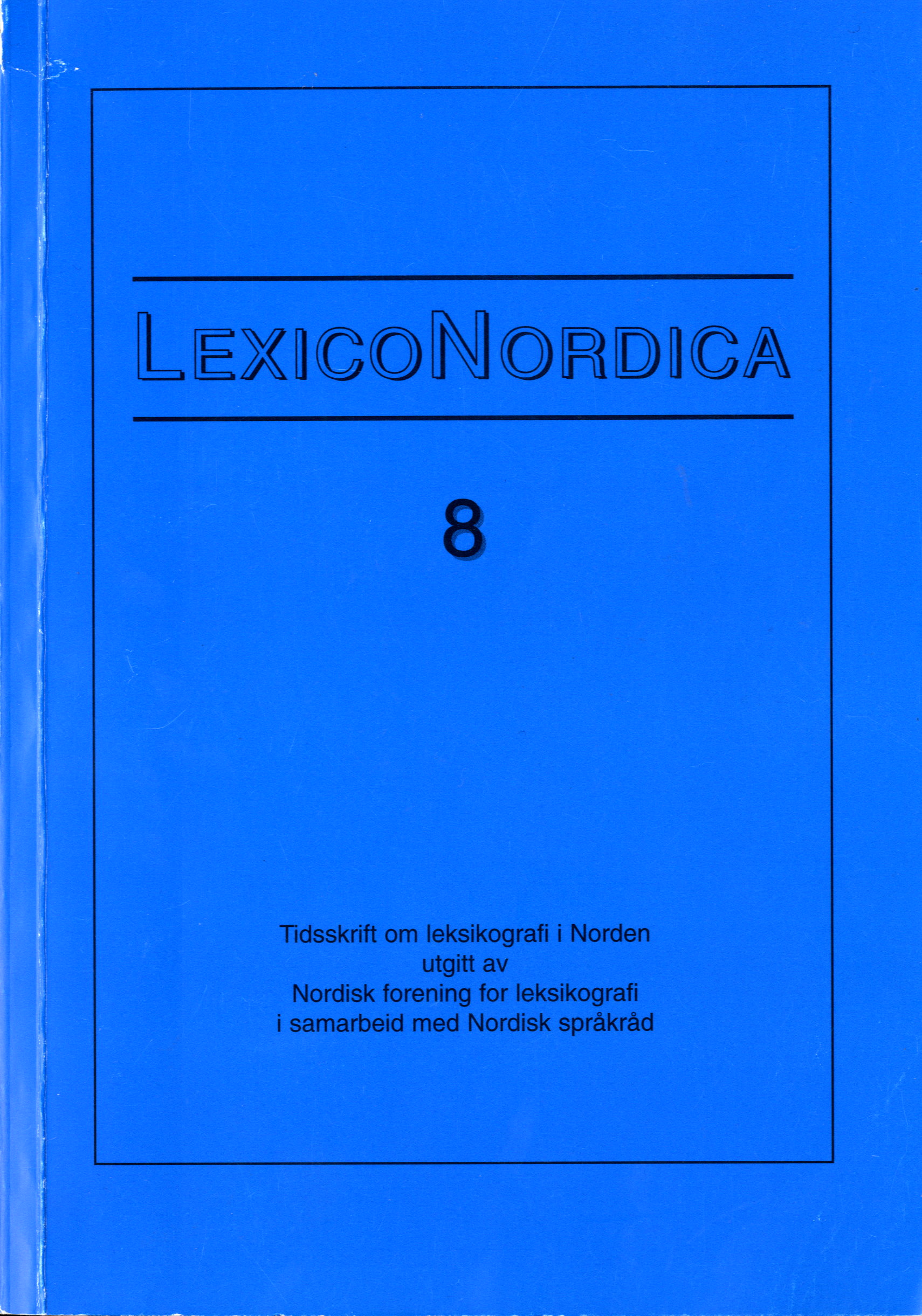Bokmål og nynorsk som kjelde- og målspråk i internordiske ordbøker
DOI:
https://doi.org/10.7146/ln.v0i8.18747Resumé
There are many bilingual dictionaries between Norwegian and the other Nordic
languages, differing a lot in size, age etc. The paper deals with the use of either of
the written standards Nynorsk and Bokmål – or both – as source languages and target
languages in these dictionaries.
Bokmål developed from Danish, which was the only written language in Norway
for centuries. Nynorsk is based on the dialects of Norway and was launched as a
written norm for a new Norwegian language about 1850. The linguistic difference
between the two standards is relatively small, partly because of spelling reforms.
More than half the vocabulary is common to the two standards. The standards are by
law given equal official standing, but Bokmål has remained the majority written
language. Most bilingual dictionaries from or to Norwegian are in Bokmål, mostly in
a more traditional subvariety than the official Bokmål standard.
In several of the newer bilingual dictionaries from Norwegian to a Nordic language
Bokmål and Nynorsk are united in one list, with common words and forms
unmarked, whereas specific words and forms have different markers. In some of the
dictionaries the source language is mainly Bokmål, supplemented with the most
frequent Nynorsk words. – This way of dealing with the bilingual situation in Norway
seems at last partly successful, although it does have its problems.
There are also bilingual Nordic dictionaries where the source language is monolingual
Nynorsk or Bokmål.
As a target language Bokmål is the dominant language. There are a couple of
dictionaries with Nynorsk as target language, and one dictionary which combines the
two in a somewhat complicated and space-demanding system.
It is desirable to have bilingual dictionaries to and from both written standards
of Norwegian. It is possible to combine them as source language, but hardly as target
language.
Downloads
Publiceret
Citation/Eksport
Nummer
Sektion
Licens
LexicoNordica og forfatterne





